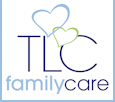How Postpartum Doulas Can Support Breastfeeding Moms
How Postpartum Doulas Can Support Breastfeeding Moms
The early weeks after birth are a time of big changes — physically, emotionally, and logistically. For parents who choose to breastfeed, this period can also come with a learning curve. A postpartum doula can play an important role in supporting breastfeeding mothers, offering both practical help and emotional reassurance.
This guide explains the ways postpartum doulas assist with breastfeeding and what to expect from their support.
Hands-On Guidance for Breastfeeding
- Positioning and Latch Support
A good latch is key for comfortable and effective breastfeeding. Postpartum doulas can observe a feeding session and suggest adjustments to positioning, helping prevent nipple pain and ensuring the baby transfers milk efficiently. - Feeding Cues and Timing
Doulas help new parents recognize early hunger cues and respond before a baby becomes upset, making feeds smoother and more relaxed. - Pumping and Milk Storage Tips
For parents who plan to pump, doulas can offer guidance on pump use, storage guidelines, and safe handling of expressed milk.
Emotional Support and Reassurance
Breastfeeding can be an emotional experience, especially if challenges arise. Postpartum doulas provide:
- Encouragement during tough moments
- Reassurance about what’s normal in the early days
- Referrals to lactation consultants for more complex issues
Practical Help Around the Home
While breastfeeding takes time and focus, doulas can help keep the household running smoothly by:
- Preparing simple, nourishing meals
- Caring for the baby between feeds so the parent can rest
- Assisting with light household tasks related to baby care
When to Seek Additional Help
If breastfeeding pain persists, supply concerns arise, or the baby is not gaining weight appropriately, a postpartum doula can connect the family with an International Board Certified Lactation Consultant (IBCLC) for specialized support.
Key Takeaway
A postpartum doula is not a replacement for medical or lactation professionals, but they are a valuable bridge — offering in-home, hands-on support, encouragement, and practical help so breastfeeding mothers can feel more confident and cared for during the postpartum period.
TLC Tip: You don’t have to do it all alone. A postpartum doula provides the calm, hands-on support new parents need — helping you rest, recover, and build confidence as you and your baby learn together.
